|
Highlights from the Network
NCBDDD Focus Areas Highlights
The National Center on Birth Defects and Developmental Disabilities (NCBDDD) aims to improve the health and well-being of women, children, and people with a range of disabilities and complex disabling conditions. NCBDDD has identified four critical Center-level focus areas. Improving the Health of People with Disabilities and Helping Children Live to the Fullest by Understanding Developmental Disabilities like Autism are two of the focus areas that touch AUCD's public health efforts. The Improving the Health of People with Disabilities focus area works to ensure that people with disabilities are included in health surveys, research, programs, policies and services that meet their needs across the lifespan. The Helping Children Live to the Fullest by Understanding Developmental Disabilities like Autism focus area aims to improve tracking, research, and improved early identification to enhance understanding of Autism and other developmental disabilities to enhance the lives of children so that they may lead full and productive lives. Each of the focus areas has a Friends of NCBDDD Champion. Adriane Griffen, AUCD's Director of Public Health, serves as the Chair of the Friends of NCBDDD and one of the Helping Children Champions.
Improving the Health of People with Disabilities
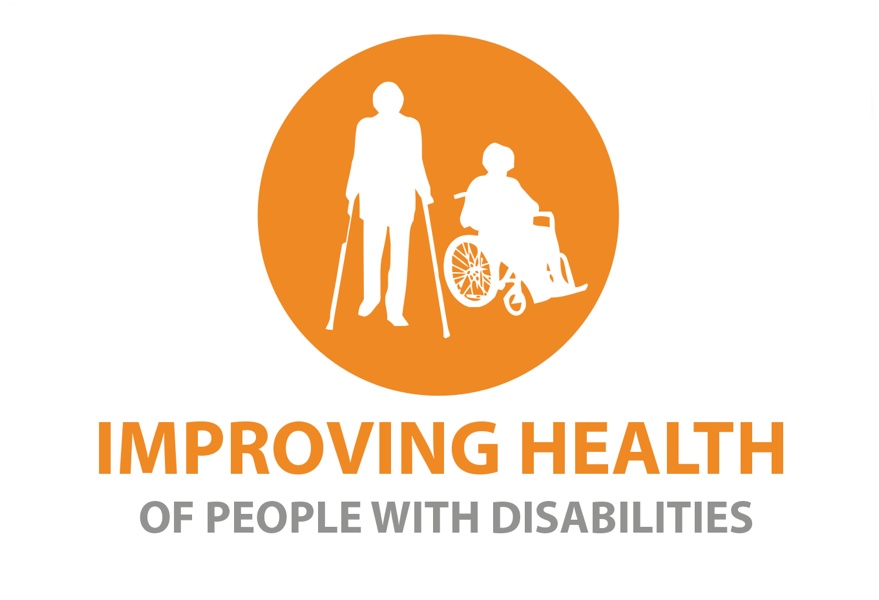 The National Center on Birth Defects and Developmental Disabilities (NCBDDD) recently released their Annual Report Fiscal Year 2014 highlighting the center's nationwide efforts to reduce health disparities among people with disabilities. To improve the health of people with disabilities, NCBDDD launched a nationwide report, CDC's Vital Signs: "Adults with Disabilities - Physical activity is for Everybody", showing that 1 in 2 adults with a disability get no aerobic physical activity. Materials and a website dedicated to resources for physicians and health professionals, were delivered to over 140 partner organizations and reached an estimated 138 million people. In addition, NCBDDD updated the Disability and Health Data System (DHDS) to include the most recent data from the 2012 Behavior Risk Factor Surveillance System on key health indicators and the data system now provides new ways to see state-level disability and health data. The center also published an important scientific article, which documented for the first time that adults with specific types of disabilities are more likely to have measured high blood pressure compared with adults without disabilities. Click here to view the full report. The National Center on Birth Defects and Developmental Disabilities (NCBDDD) recently released their Annual Report Fiscal Year 2014 highlighting the center's nationwide efforts to reduce health disparities among people with disabilities. To improve the health of people with disabilities, NCBDDD launched a nationwide report, CDC's Vital Signs: "Adults with Disabilities - Physical activity is for Everybody", showing that 1 in 2 adults with a disability get no aerobic physical activity. Materials and a website dedicated to resources for physicians and health professionals, were delivered to over 140 partner organizations and reached an estimated 138 million people. In addition, NCBDDD updated the Disability and Health Data System (DHDS) to include the most recent data from the 2012 Behavior Risk Factor Surveillance System on key health indicators and the data system now provides new ways to see state-level disability and health data. The center also published an important scientific article, which documented for the first time that adults with specific types of disabilities are more likely to have measured high blood pressure compared with adults without disabilities. Click here to view the full report.
Helping Children Live to the Fullest by Understanding Developmental Disabilities like Autism
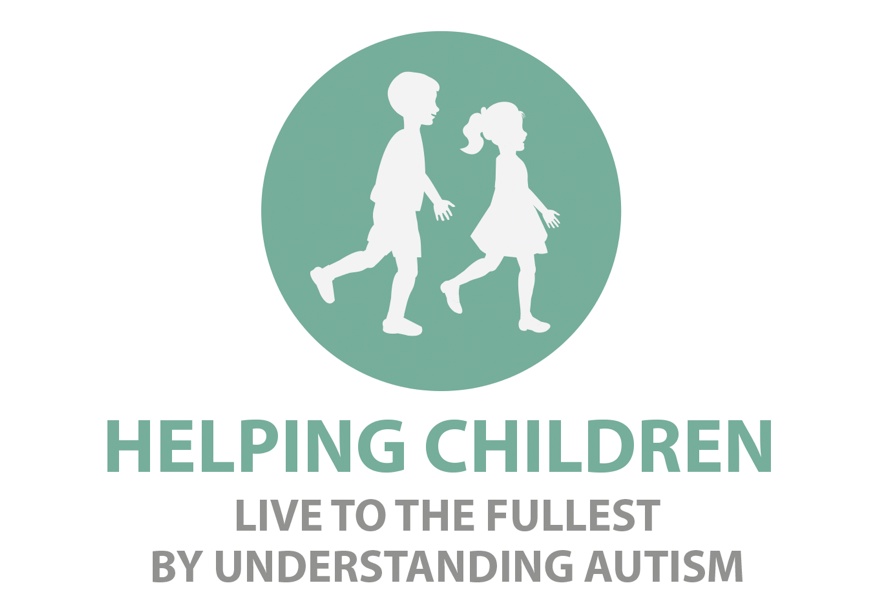
NCBDDD is helping children live to the fullest by understanding developmental disabilities like Autism. NCBDDD works to provide essential data, search for risk factors and causes of Autism Spectrum Disorder (ASD), and develop resources that help identify children with ASD and other developmental disabilities as early as possible. The center reports several major accomplishments in the Annual 2014 report including that updated prevalence estimates from the Autism and Developmental Disabilities Monitoring (ADDM) Network indicate that about 1 in 68 eight-year-old children living in multiple communities in 2010 were identified with ASD. NCBDDD promotes developmental monitoring and screening to help children with developmental delays be identified as early as possible. The "Learn the Signs. Act Early" campaign partnered with the HHS/Department of Education initiative, "Birth to 5: Watch Me Thrive!", that reached federal grantees and partners in health care and child care, families, and communities across the country. Its newest tool, "Watch Me! Celebrating Milestones and Sharing Concerns", is dynamic, interactive continuing education training for child care providers and teachers. To review the full report, please click here.
Public Health is for Everyone
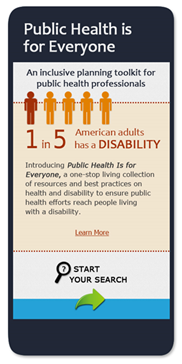 According to the CDC's Disability and Health Data System (DHDS), 44.3% of American adults with disabilities reported that they had fair or poor health in 2012. Data from DHDS shows that 12.5% of American adults with disabilities have heart disease, and 41.7% of adults with disabilities reported ever having high blood pressure in 2011. Public Health is for Everyone aims to increase the capacity of public health professionals to create programs that meet the needs of all individuals within a community, including people with disabilities. The Public Health is for Everyone toolkit, located at www.phetoolkit.org provides health professionals with resources including field guides, educational videos, factsheets, checklists, brochures, and other tools. Users can search disability and health related resources by the health needs of your community. To view, download, and share these resources, please visit, www.phetoolkit.org. The health resource topics include nutrition, health care access, physical activity, emergency preparedness, obesity, accessibility, tobacco, and general inclusion issues. You can submit your resources for including people who have a disability in public health efforts for inclusion in the toolkit, so health professionals can learn from and use your strategies. According to the CDC's Disability and Health Data System (DHDS), 44.3% of American adults with disabilities reported that they had fair or poor health in 2012. Data from DHDS shows that 12.5% of American adults with disabilities have heart disease, and 41.7% of adults with disabilities reported ever having high blood pressure in 2011. Public Health is for Everyone aims to increase the capacity of public health professionals to create programs that meet the needs of all individuals within a community, including people with disabilities. The Public Health is for Everyone toolkit, located at www.phetoolkit.org provides health professionals with resources including field guides, educational videos, factsheets, checklists, brochures, and other tools. Users can search disability and health related resources by the health needs of your community. To view, download, and share these resources, please visit, www.phetoolkit.org. The health resource topics include nutrition, health care access, physical activity, emergency preparedness, obesity, accessibility, tobacco, and general inclusion issues. You can submit your resources for including people who have a disability in public health efforts for inclusion in the toolkit, so health professionals can learn from and use your strategies.
To gain evidenced-based knowledge through disability and health statistics, awareness of disability and health events, and disability and public health projects and news, follow Public Health is for Everyone at @PHis4Everyone and join the inclusion movement!
Do you know public health professionals who have resources for including people who have a disability in public health efforts? You can help to further develop Public Health is for Everyone by copying and pasting the above text into your organization's newsletter, so more professionals become aware of the toolkit. Just send an email to [email protected] to let us know where you shared information about Public Health is for Everyone.
Five States Awarded Disability and Health Program Value Opportunity through AUCD-CDC Partnership
 
AUCD is partnering with CDC's National Center on Birth Defects and Developmental Disabilities to subcontract with 5 states to access Medicaid data and perform analyses to enhance understanding of the impact and value of state-based Disability and Health Grantee efforts. People with disabilities insured by Medicaid comprised 15% of the Medicaid population (62.7 million people) and accounted for 42% of total Medicaid expenditures ($263.4 billion) in 2009. While state level data are available that describes people with disabilities, the definition of disability employed is general (i.e. based on a functional definition) and does not allow for the identification of people with specific types of disability (e.g. limb loss, autism, cerebral palsy) or their type(s) of insurance coverage (e.g. Medicaid). The lack of disability-specific data hinders opportunities to characterize the populations of interest, identify specific health issues among those populations, and track progress of health and wellness improvement by primary disabling condition. The goals of the project are to:
• identify people with intellectual disability covered by Medicaid in a state
• characterize the leading health issues that these Medicaid recipients living with the aforementioned conditions experience
• identify opportunities to improve the health and wellness of Medicaid recipients living with the aforementioned conditions
Algorithms for analysis and technical assistance will be provided through AUCD's cooperative agreement with CDC's Office for State, Tribal, Local and Territorial Support; the National Center on Birth Defects and Developmental Disabilities; and a subcontract with the University of South Carolina. The five states collaborating on this effort are Massachusetts, Iowa, Illinois, Delaware, and New York.
For more information on this project, contact Adriane Griffen, AUCD's Director of Public Health.
Cultural Adaptation of Legacy for ChildrenTM for Latino Communities: Mixed Methods Evaluation (OK UCEDD LEND)
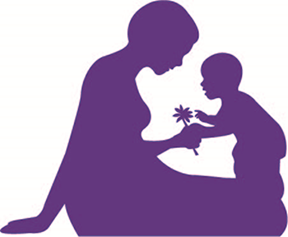 Legacy for ChildrenTM is an evidence-based program developed by the Centers for Disease Control & Prevention (CDC) focused on promoting positive parenting for children in families with low-income. Results from randomized clinical trials are positive, showing lower behavior problems, socio-emotional problems, and hyperactive behavior symptoms in children of mothers who participated in the Legacy for ChildrenTM program than those in the control group (Kaminski et al., 2013). The Legacy for ChildrenTM program has been translated and culturally adapted for Latino families. OUHSC was recently funded to examine the cultural adaptation, feasibility, and initial outcomes of the Legacy for Children program. The work is sponsored through the AUCD-CDC cooperative agreement and housed at the Center on Child Abuse and Neglect (CCAN) which is part of the AUCD network center, through the Oklahoma UCEDD/LEND program. Legacy for ChildrenTM is an evidence-based program developed by the Centers for Disease Control & Prevention (CDC) focused on promoting positive parenting for children in families with low-income. Results from randomized clinical trials are positive, showing lower behavior problems, socio-emotional problems, and hyperactive behavior symptoms in children of mothers who participated in the Legacy for ChildrenTM program than those in the control group (Kaminski et al., 2013). The Legacy for ChildrenTM program has been translated and culturally adapted for Latino families. OUHSC was recently funded to examine the cultural adaptation, feasibility, and initial outcomes of the Legacy for Children program. The work is sponsored through the AUCD-CDC cooperative agreement and housed at the Center on Child Abuse and Neglect (CCAN) which is part of the AUCD network center, through the Oklahoma UCEDD/LEND program.
The OUHSC study will use a mixed-methods approach to first examine the social validity, acceptability, and cultural congruency for service providers and parent consumers of the culturally-adapted services of Legacy for ChildrenTM. Latina providers teaching parenting to first-generation immigrant families with young children in Oklahoma will review and provide feedback on the cultural congruency and feasibility of the program via focus groups. In addition, qualitative interviews will be conducted with potential consumers as well bilingual families currently enrolled in The Legacy for ChildrenTM to examine cultural congruency and needed areas of supports. To learn more about this program and the Latino population in Oklahoma, please click here.
Physical Activity and Obesity Photovoice Project

The Institute of Medicine (IOM) invites you and the communities you work with to participate in a photo and video project, ThatsHowiMove. You are invited to respond to the following questions by submitting a photo or video and telling the IOM how your community could make being active easier or safer.
• What do you do to be active? What makes it difficult for you to be active? Are there things in your neighborhood or town that make being active a challenge? Was there a time when you were less active? What changed?
The photos, videos, and stories will be posted to the IOM website and displayed in a gallery at the National Academy of Sciences in Washington, D.C. On April 15th. Policy and decision makers will gather at the IOM to discuss barriers people face to being physically active, especially those related to race/ethnicity, age, gender, income, socio-economic status, education, neighborhood, sexual orientation, and ability. Images and stories will change how these leaders think and help them make our communities healthier.
Community-based organizations, schools, faith-based groups, and other groups that gather regularly are encouraged to collaborate with the IOM on this project. Community-level groups can serve as facilitators by engaging people in conversations about the project, discussing barriers to being active, and suggesting solutions to these barriers. Community groups are invited to contact the IOM for more information and learn how the project can benefit their communities. Read next steps and more at www.iom.edu/thatshowimove.
Save-The-Date: CDC Public Health Grand Rounds, featuring NCBDDD and Family Reaction Panel Conference Call

Please save the date for the March Public Health Grand Rounds focused on the NCBDDD's work in pediatric emergency preparedness.
Topic: Pediatric Preparedness in Public Health Emergencies
Date: Tuesday, March 17, 2015, 1:00-2:00pm ET
Location: Atlanta, Ga.
Live broadcast: cdc.gov/cdcgrandrounds
Please add the live viewing to your calendars and share with your networks.
Make place to join us from 2:00-3:00pm ET for our Friends of NCBDDD Family Briefing
Format: Conference call 866-951-1151, code 7307522
This call is for families, professionals, and partners. This call will share relevant updates and the family perspective from the CDC Grand Rounds on pediatric emergency preparedness in a lay format. A reaction analysis panel will include representatives from the Friends of NCBDDD and Family Voices.
APHA Disability Section Call for 2015 Awards Nominations
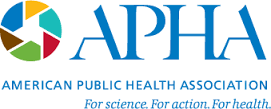 Do you know someone who has made a significant contribution through scholarship, teaching, practice and/or advocacy to advance the health and quality of life of people with disabilities? Do you know an especially dedicated student? If you do, now is the time to nominate him or her for one of the 2015 APHA Disability Section Awards. Join us in honoring those who have made significant contributions to the field of disability within the context of public health. Students are encouraged to nominate a fellow student or mentor. The Disability Section offers the following awards: 1) Lifetime Achievement, 2) Allan Meyers, 3) New Investigator, 4) Student Member, and 5) Advocacy. A nomination form is available online. The deadline for nominations is 5pm ET, Wednesday, April 1, 2015. The winners will be presented with their awards at the 2015 APHA Annual Meeting in Chicago during the Disability Section Business and Awards Meeting. For further information, please contact Adriane Griffen, APHA Disability Section Awards Committee Chair, at [email protected]. Do you know someone who has made a significant contribution through scholarship, teaching, practice and/or advocacy to advance the health and quality of life of people with disabilities? Do you know an especially dedicated student? If you do, now is the time to nominate him or her for one of the 2015 APHA Disability Section Awards. Join us in honoring those who have made significant contributions to the field of disability within the context of public health. Students are encouraged to nominate a fellow student or mentor. The Disability Section offers the following awards: 1) Lifetime Achievement, 2) Allan Meyers, 3) New Investigator, 4) Student Member, and 5) Advocacy. A nomination form is available online. The deadline for nominations is 5pm ET, Wednesday, April 1, 2015. The winners will be presented with their awards at the 2015 APHA Annual Meeting in Chicago during the Disability Section Business and Awards Meeting. For further information, please contact Adriane Griffen, APHA Disability Section Awards Committee Chair, at [email protected].
2015 Disability Section Awards Nomination Form
2015 Preparedness Summit Disability and Functional/Access Needs Sessions

People with disabilities and others with functional and/or access needs are more likely to be left out of emergency/disaster planning and more likely to suffer negative health impacts during and after an emergency. Recognizing this important priority, NACCHO's 2015 Preparedness Summit includes several sessions focusing on ways to integrate and include affected populations in public health preparedness activities.
Relevant sessions are scheduled for:
Tuesday, April 14
10:30am-12pm, M301 Building and Maintaining Partnerships to Integrate the Access and Functional Needs of At-Risk Individuals into Healthcare Coalitions
3:30p-5pm, International 8, A Public Health Preparedness Initiative to Improve Access to Data on Populations with Functional and Access Needs in Kentucky
Wednesday, April 15th
8:30am-10am, International 1, Hazard-Based Identification of Populations at Risk
1:30pm-3pm, M102, How to Develop a Multifaceted Approach to Reaching At-Risk Populations: Examples from New Orleans
1:30 pm- 5pm, International 4, [workshop] Disaster Preparedness for our Community's Most Vulnerable: Leveraging Existing Resources of Community Human Service Organizations
1:30pm-5pm, M303, [workshop] Learning to Use the CDC Clear Communication Index
3:30pm-5pm, International 1, [DEMO] Ecological Modeling for Disasters: Using Data Systems to Improve Planning and Response for Vulnerable Populations
Thursday, April 16th
10:30am-12pm, International 7, [Ignite Session] The Effects of Hurricane Sandy on Vulnerable Populations: Implications for Preparedness Efforts
10:30am-12pm, International 9, Understanding Climate Change: The Implications on Disaster Behavior Health in Vulnerable Populations
10:30am-12pm, International 10, [Ignite Session] Improving Influenza Immunizations: Protecting Vulnerable Populations through Partnerships with Program Analyst, Health & Disability/Public Health Law Providers
Friday, April 17th
8:30am-10am, International 6, Public Health Preparedness: Academic Partnerships in Planning for Vulnerable Populations and Community Resilience
The link for registration to the Preparedness Summit can be found here.
Join the Health and Disability SIG listserv to continue the conversation on topics including nutrition, physical activity, and accessibility. Just send an email to Abigail Alberico at [email protected] to join!
|


